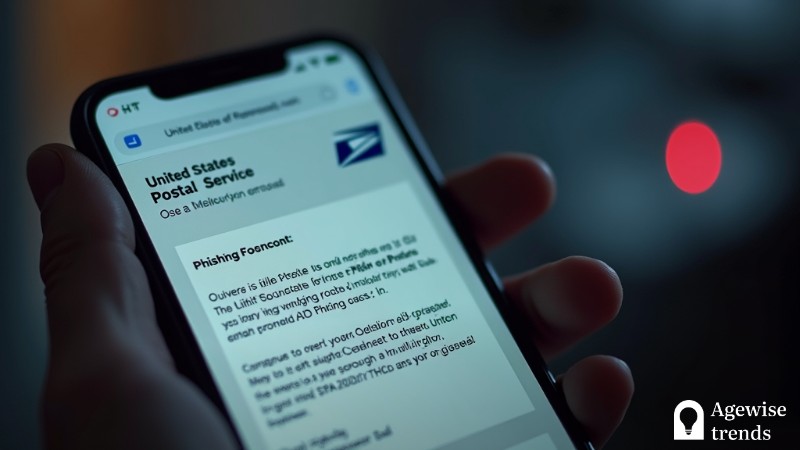The federal government has locked up a Nigerian individual who orchestrated a complex online phishing operation that swindled numerous individuals seeking to buy homes and the companies they worked with out of significant amounts of money.
Extradited from the UK to the United States in April 2024, Kolade Akinwale Ojelade, a Nigerian national living in Leicester at the time, accepted responsibility for his crimes of wire fraud and identity theft.
In a sophisticated phishing operation, Ojelade compromised the security of real estate companies’ accounts, allowing him to capture and redirect wire payment information.
Key Takeaways
A Nigerian man was sentenced to 26 years in prison for orchestrating a phishing scam that targeted homebuyers and resulted in $12 million in losses.
- The scam involved compromising real estate companies’ accounts, allowing the perpetrator to capture and redirect wire payment information.
- The FBI’s Dallas Division highlighted the severe consequences of financial crimes and emphasized the importance of global partnerships in combating cybercrime.
- Homebuyers are advised to be cautious when receiving suspicious emails or phone calls related to wiring instructions and to verify authenticity with relevant parties before taking action.
How the Scam Worked
Court records indicate that Ojelade initiated phishing attacks against real estate companies and subsequently tracked email activity on compromised accounts in anticipation of significant financial transactions.
Yoruba man in the US, Kolade Akinwale Ojelade, who specializes in wire fraud and Identity theft; found guilty in Texas.
This is rubbing off on Nigerians as a whole, and the green passport. pic.twitter.com/Q63BJxSNZH
— Truth Media 🌤️ (@greytruthmedia) July 23, 2024
The individual launched a series of Business Email Compromise (BEC) operations that involved modifying payment details for wire transfers and having the funds redirected to his own accounts.
Investigators reported that the planned financial loss exceeded $100 million, while the actual damage came in at around $12 million. The FBI’s Dallas Division highlighted the severe consequences that individuals and businesses suffer from financial crimes.
Furthermore, P.J. O’Brien, Acting Special Agent in Charge of the FBI Dallas Division commented on the matter.
Today’s sentence reflects the seriousness of his crimes. Financial crimes can be devastating for individuals and companies because most times those monetary funds are never recovered.
P.J. O’Brien
This case underscores the global threat posed by online financial crimes, prompting collaboration between U.S. and international law enforcement. Through this cooperation, the FBI and its partners were able to track and apprehend Ojelade, emphasizing the cross-border nature of cybercrime and the importance of global partnerships in combatting it.
How Phishing Scams Work
Phishing attacks often start with a seemingly innocent message. For example, a scammer might send an email claiming to be from your bank, asking you to confirm your account details due to “suspicious activity.”
The email will usually contain a link that takes you to a fake website designed to look just like the real one, where your information can be stolen. The most common tactics in phishing scams include:
Urgent Warnings: Messages that claim your account is compromised and prompt you to act immediately.
Spoofed Email Addresses: Cybercriminals use addresses similar to legitimate ones, with slight variations that are easy to miss.
Official-Looking Websites: Fake sites mimic real websites by using logos, layouts, and branding that resemble trusted organizations.
Types of Phishing Scams
Email Phishing
This is the most widespread type of phishing, where cybercriminals send fraudulent emails en masse, hoping a percentage of recipients will fall for the scam. Often, these emails claim to be from banks, government agencies, or online services, urging recipients to take immediate action.
Spear Phishing
Unlike broad email phishing, spear phishing targets specific individuals or organizations. The attacker personalizes the message by including the target’s name, position, or relevant details, making it more believable.
Great tips! 🔐 Security starts with the basics: unique passwords, avoiding phishing scams, and never trusting suspicious links or software. And remember, public Wi-Fi is a hacker’s playground – stay sharp!
— Match Systems (@MatchSystems) November 5, 2024
Spear phishing is commonly used against companies and high-profile individuals.
Whaling
This is a type of spear phishing aimed at senior executives or “big fish” in an organization. Whaling attacks often involve social engineering tactics, leveraging inside knowledge to gain the trust of high-ranking individuals and extract valuable information.
Smishing and Vishing
Smishing (SMS phishing) and vishing (voice phishing) occur through text messages and phone calls, respectively. In smishing, a fraudulent text prompts the recipient to click on a malicious link, while vishing involves scammers calling and posing as legitimate organizations to gain access to sensitive information.
Pharming
Also known as “phishing without a lure,” pharming involves redirecting users from a legitimate website to a fraudulent one without their knowledge. This technique manipulates the Domain Name System (DNS), tricking users into thinking they are on a safe site when they’re actually on a fake one.
A Warning to Homebuyers
Ojelade’s case represents only one example in the rapidly evolving landscape of cybercrime. Cybercriminals are increasingly sophisticated, utilizing advanced phishing and BEC techniques, ransomware, and data theft schemes.
Additionally, buying a home is often the largest financial commitment individuals make, which makes homebuyers attractive targets for scams. To avoid falling victim to similar scams, homebuyers are advised to be cautious when receiving suspicious emails or phone calls related to wiring instructions.
They addressed some critical steps homebuyers can take to protect themselves.
**Verify Payment Instructions in Person or Over the Phone
It is essential to verify the authenticity of these communications with the relevant parties before taking any action. This includes confirming wiring instructions in person or by phone and being wary of requests for sensitive information.
Be Skeptical of Urgent or Unusual Requests
Cybercriminals often create a sense of urgency to prompt quick action without verification. Furthermore, you should also avoid sending sensitive information via email. If it’s unavoidable, consider encrypted communication channels.
Specifically, Ojelade utilized his expertise in email systems to gain unauthorized access to accounts and subsequently pilfer millions of dollars from prospective homeowners who were unaware of the deception.
The cybersecurity risks facing real estate firms and other businesses handling financial data are significant. Real estate companies should implement best practices to secure their systems and prevent unauthorized access. These measures include:
Two-Factor Authentication (2FA): This adds an extra layer of security, requiring a second form of verification beyond just a password.
Regular Security Audits: Periodic assessments help companies identify vulnerabilities before they’re exploited by cybercriminals.
Training Employees on Phishing Risks: Teaching employees to recognize phishing emails can prevent scams before they start.
The severity of Ojelade’s sentence underscores the critical significance of online security and highlights the imperative necessity for individuals to remain constantly vigilant to safeguard themselves against the insidious threats posed by phishing scams.
With technological advancements occurring at a rapidly accelerating rate, it is only natural that sophisticated cybercriminals adapt their tactics in response, continually seeking innovative ways to deceive and exploit vulnerable targets.
Staying informed about emerging online threats and taking necessary precautions to safeguard against financial loss are essential components of protecting oneself from the insidious effects of cybercrime.
The Federal Bureau of Investigation cautions individuals and organizations to exercise extreme vigilance when encountering suspicious communications linked to financial dealings.
What to Do If You’ve Been Phished
If you suspect that you have fallen victim to a phishing scam, act quickly by updating your passwords for all accounts, especially those connected to sensitive information.
Then, keep a close eye on your financial accounts and report any unauthorized transactions. And lastly, notify your bank or the service involved in the scam. They may be able to freeze your account or take other measures to prevent further fraud.
What You Can Do to Protect Yourself
To safeguard against falling victim to phishing scams such as the one orchestrated by Ojelade, it is crucial to adopt a multi-faceted approach that prioritizes robust security measures, verifies wiring instructions, and exercises extreme caution when sharing sensitive information.
Phishing scams remind us of the importance of digital literacy. Understanding these scams, recognizing the warning signs, and knowing how to respond are essential skills for anyone navigating the digital landscape.
Ojelade’s sentencing serves as a stark reminder of the necessity for vigilance in online transactions. As cybercriminals continually refine their techniques, staying proactive and informed about cybersecurity practices is crucial in safeguarding against potential threats.














